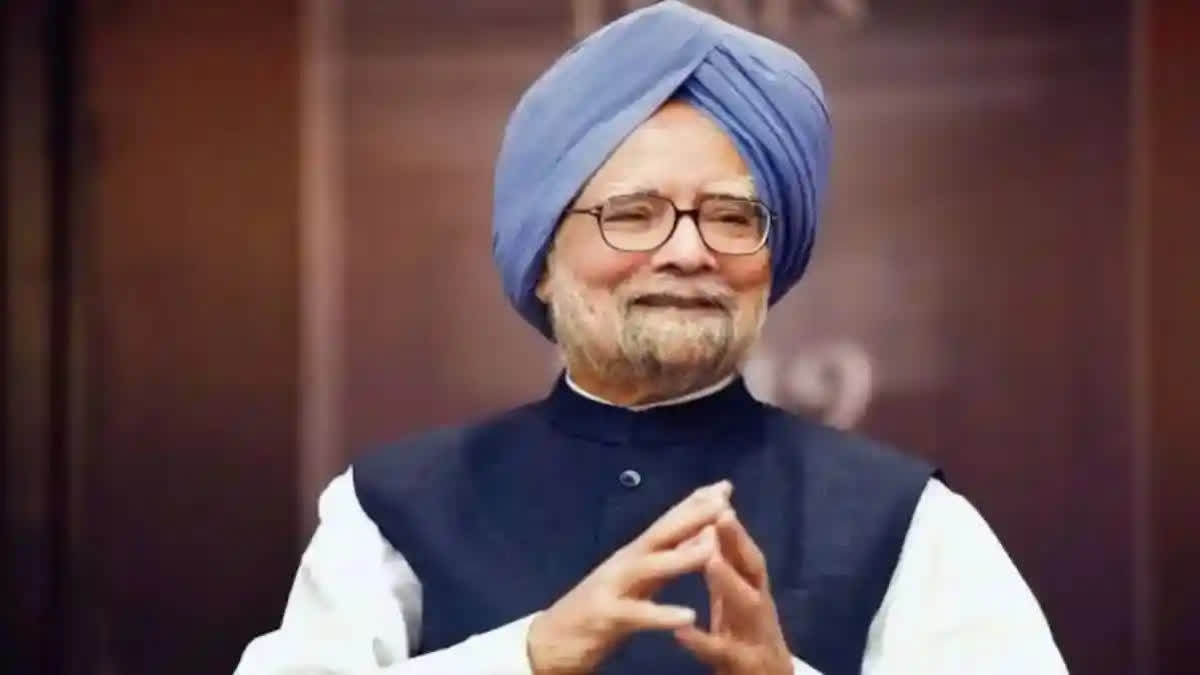New Delhi:Former Prime Minister Manmohan Singh died at the age of 92 at the AIIMS Delhi, the hospital authorities confirmed on Thursday night. According to sources, Singh was admitted in critical condition.
Singh's death was announced by the AIIMS, Delhi, where he was admitted to the Emergency ward around 8.30 PM in a critical condition. An AIIMS bulletin said "He was treated for age-related medical conditions and had a sudden loss of consciousness at home" on December 26.
Former PM Manmohan Singh Passes Away At 92 (PTI) "Resuscitative measures were started immediately at home. He was brought to a medical emergency at AIIMS Delhi at 8.06 pm. Despite all efforts, he could not be revived and was declared dead at 9.51 pm," said the bulletin.
He is survived by his wife Gurcharan Singh and three daughters. Congress leader Priyanka Gandhi Vadra and her mother Sonia Gandhi reached the hospital as soon as the news of his hospitalisation became known.
Singh, who was finance minister under the then prime minister P V Narasimha Rao, was the architect and the brainchild of economic reforms in 1991 that pulled India from the brink of bankruptcy and ushered in an era of economic liberalisation that is widely believed to have changed the course of India's economic trajectory.
Congress president Mallikarjun Kharge and Leader of Opposition in Lok Sabha Rahul Gandhi, who were here to take part in the centenary celebrations of the 1924 Indian National Congress session that was presided over by Mahatma Gandhi, are rushing to Delhi following the demise of former Prime Minister Manmohan Singh, official and party sources said.
Manmohan Singh gained national and international recognition as Finance Minister from 1991 to 1996 in the government headed by then-Prime Minister PV Narasimha Rao. It was during this time that Singh played a pivotal role in steering the country through a severe economic crisis. With his visionary leadership, he introduced groundbreaking economic reforms, including liberalisation, privatisation, and globalisation, that opened up India's economy to the world, leading to substantial growth and transformation in various sectors.
Following his success as Finance Minister, Singh ascended to the position of Prime Minister, where he served two consecutive terms from 2004 to 2014 under the United Progressive Alliance (UPA) government. His tenure as the Prime Minister was marked by significant progress in India's economic growth, though it was also met with challenges, including issues related to governance, corruption scandals and the political horizon.
Even after stepping down as the Prime Minister in 2014, Singh continued to remain an influential figure in Indian politics. He served as a member of the Rajya Sabha, representing the state of Assam, where his insights and expertise on economic and international affairs were highly respected.
He retired from the Rajya Sabha in April 2024, marking the end of his long and distinguished political career in the Upper House of Parliament. His legacy as a statesman and economist remains central to India's modern economic history.
